Standard GermanGeneral
- Language
- German
- Intensity
- 25 hours/week
| Accommodation options | More about Vienna |
|---|---|
| Room outside of centre | 508USD/month |
| Room in centre | 793USD/month |
| One bedroom outside of centre | 854USD/month |
| One bedroom in centre | 1,165USD/month |
Article score: 5 out of 5 (1 review)
Language courses in Austria will be a real discovery for those who wish to learn German. Details about the features of education, requirements for students, prices and living conditions
Free consultation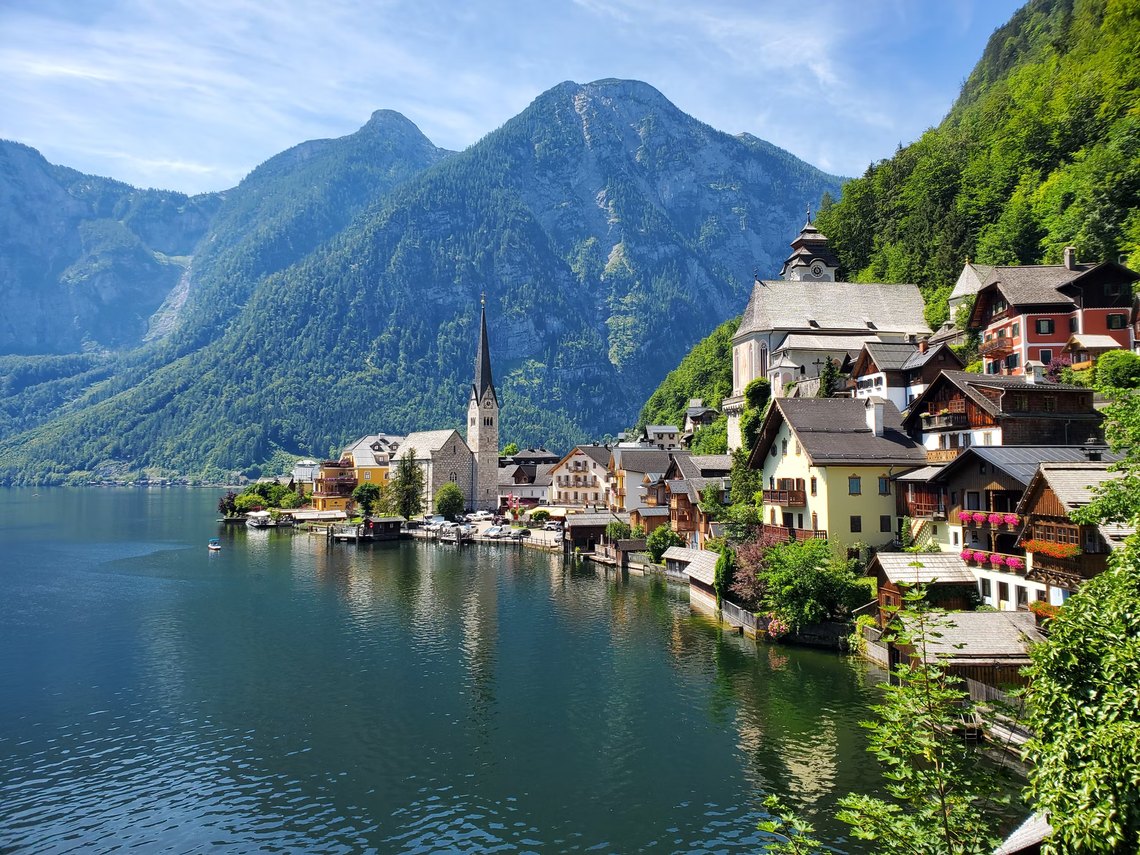
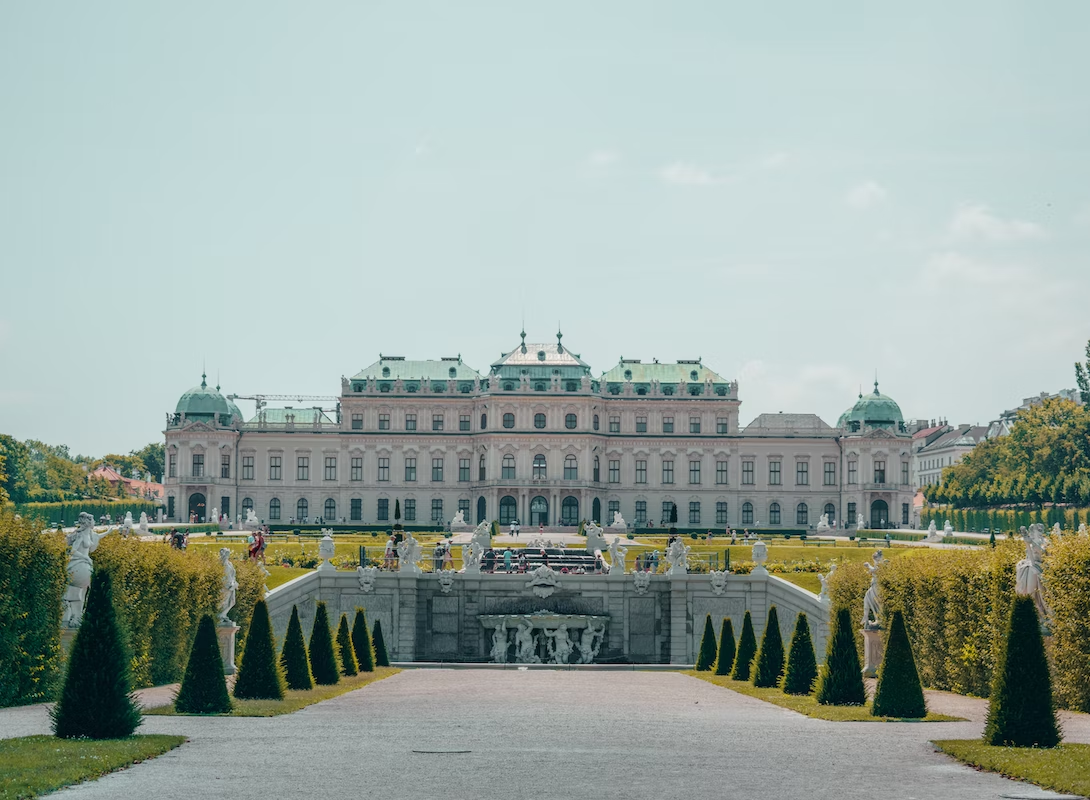
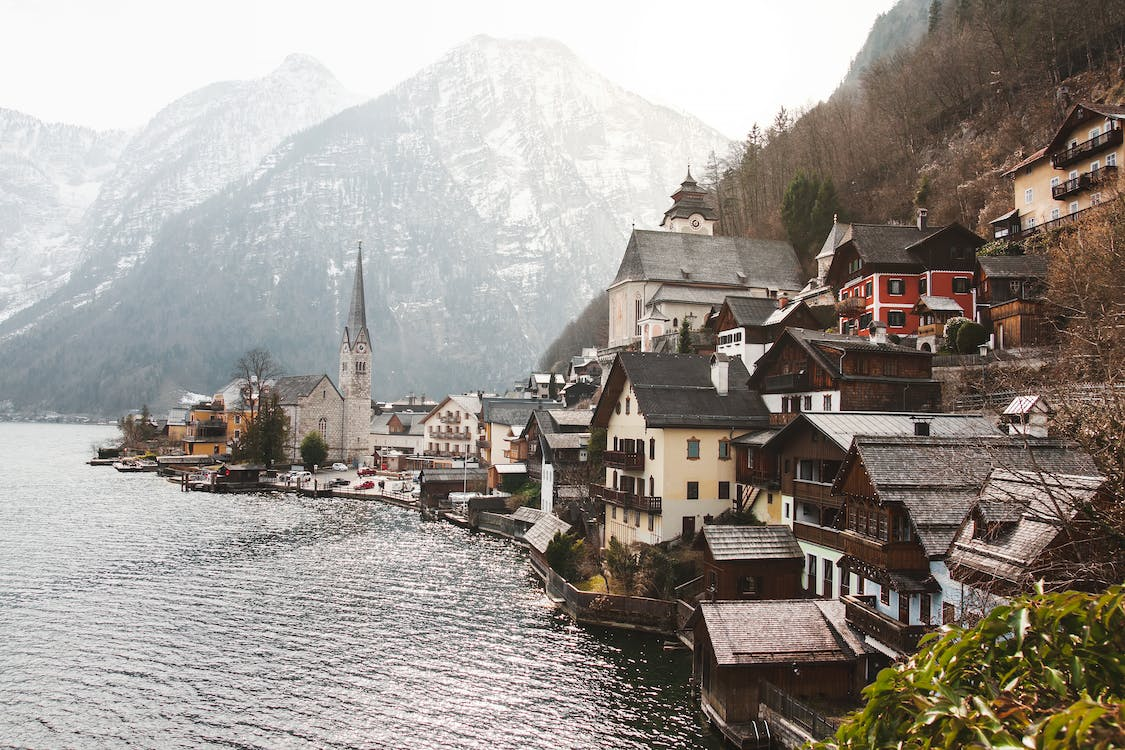
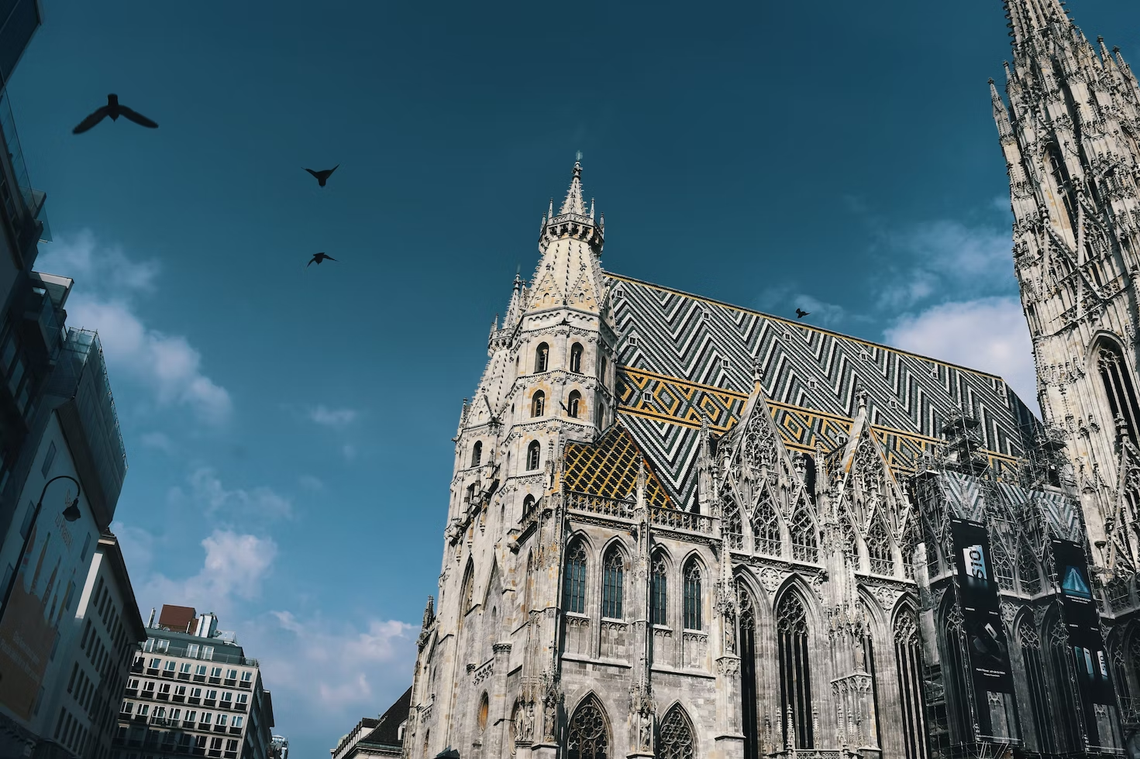
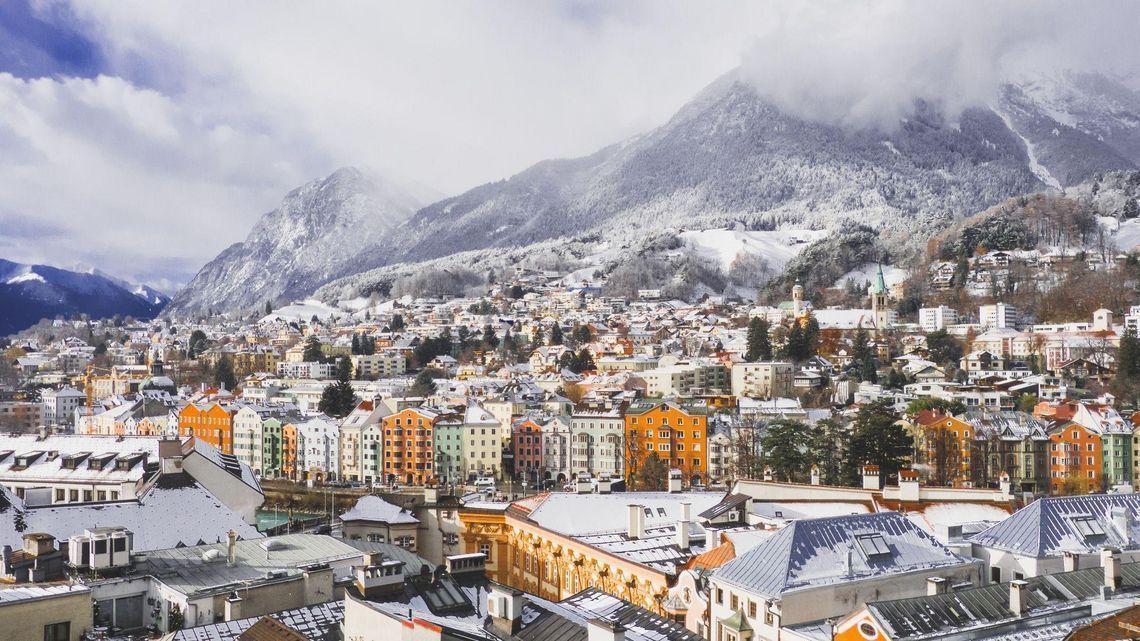

German language courses in Austria are quite popular among foreigners, as they allow you to combine education with a quality vacation. A rich history, culture, famous ski resorts — all of this attracts those who want to learn a language in one of the most beautiful countries in Europe[1].
German itself takes 4th place in terms of the number of students who choose to study the language[2]. German is the official language in 6 European countries, and is spoken by more than 8 million people in Austria.

| Accommodation options | More about Vienna |
|---|---|
| Room outside of centre | 508USD/month |
| Room in centre | 793USD/month |
| One bedroom outside of centre | 854USD/month |
| One bedroom in centre | 1,165USD/month |
| Accommodation options | More about Vienna |
|---|---|
| Room outside of centre | 508USD/month |
| Room in centre | 793USD/month |
| One bedroom outside of centre | 854USD/month |
| One bedroom in centre | 1,165USD/month |
The search for the best language courses is accompanied by many challenges and questions: Is the school reliable? What kind of visa do I need to apply for? How do I choose the type and intensity of the program?
At UniPage, we only work with reliable, accredited schools. We will explain what language learning options are available in Austria, helping you find the language program that suits your goals and preferences.
| Type of program | Intensity | Group | Min. language requirements | Min. cost per week |
|---|---|---|---|---|
| Standard course | 20-25 | 8-12 | Starter (A0) | 316 USD |
| Intensive course | 30-35 | 6-12 | Starter (A0) | 452 USD |
| Super-intensive course | 35 | 6-12 | Starter (A0) | 678 USD |
| One-to-one lesson | Individual | 1 | Starter (A0) | 70 USD/lesson |
| German for University | 25-35 | 8-10 | Starter (A0) | 271 USD |
| Exam preparation course (ÖSD) | 6-8 | 5-12 | Elementary (A1) | 118 USD |
| Business German course | 30-35 | 8-12 | Intermediate (B1) | 452 USD |
| German and Teacher Training | 25-30 | 8-12 | Intermediate (B1) | 407 USD |
| Study & Live in Your Teacher's Home | 10-15 | 1 | Starter (A0) | 1,356 USD |
| Summer school | 20-30 | 10-15 | Starter (A0) | 847 USD |
| German and Music | 20-30 | 8-12 | Starter (A0) | 1,257 USD/month |
| German in the City | 2-6 | 1 | Starter (A0) | 113 USD/2 lessons |
| Foundation Program | 24 | 18-20 | Pre-intermediate (A2) | 1,424 USD/course |
| University language courses | 15 | 10-16 | Starter (A0) | 1,147 USD/course |
| Seasonal university courses | 15 | 10-16 | Starter (A0) | 599 USD/course |
Regular language courses include Standard, Intensive, and Super Intensive courses. These programs are aimed at developing language skills. The only difference between them is the intensity (number of hours per week). One-to-one lessons cover the same material as standard courses, but are held one-on-one with a teacher and the student can choose the intensity himself.
There are also unique courses. They combine language learning with additional disciplines, exam preparation, university enrollment, or work at an Austrian company.
German in the City. This program is a combination of a standard/intensive course and individual extracurricular lessons throughout the city. During such "walks", students practice the language in a natural environment: in shops or cafes, on transportation, and so on.
German and Music. The course is designed for those who want to study music in addition to the language. The weekly program includes 20-30 language lessons, one to three lessons on musical theory, and one practical lesson: vocals or a chosen instrument (violin, piano, clarinet).
German for University. As part of these programs, students prepare for the ÖSD international language exam, study the higher education system in Austria, and at the end of the course receive recommendations for enrolling at universities: which university to choose and how to apply and prepare documents.
German and Teacher Training. This course combines standard German language classes (20 hours/week) with lessons on teaching methods. Similar programs can be found at several language schools, such as Innes, Actilingua, and Deutsch in Graz. (7 hours/week)
Study & Live in Your Teacher's Home. Under the Home Language International program, students live in the house of their teacher, learn the language during individual lessons, and continue to practice it during joint meals, walks, and everyday communication. You can also find German courses for professionals in various fields: tourism, medicine, aviation, business, and architecture. In this case, the program selects a teacher who has experience in teaching a specialized language, but who will not be an expert in the chosen field.
Foundation Program. These are courses that fill gaps in knowledge and prepare for entrance exams to universities: mathematics, English, chemistry, biology, and also German. An example of such a program is Vorstudienlehrgänge. The programs enroll students who have already been accepted to one of the 6 partner universities of the program[4], but still need to improve their language level and prepare for the entrance exams. For admission, you need to have an A2 level of language proficiency.
Language courses. Language centers at universities offer courses for everyone aged 16 and over. For admission, universities do not put forward any special requirements — you just need to pass a language level assessment. Classes usually begin each semester or trimester and last 9-12 weeks. In Austria, several universities offer such courses, such as the University of Vienna and the University of Innsbruck.
Seasonal courses. You can sign up for these courses at certain times of the year, the most common being the winter and summer. These courses differ from the usual ones only in duration — 4 weeks. Universities can also provide a room in a student hostel for the duration of the course. The cost of living is 1,266 USD for 4 weeks.

Austrian language schools teach Standard German (Standarddeutsch), the common language used in media, politics, and education in Germany. However, a student in Austria will come across so-called Austrian German — in this variant of the language, the vocabulary, pronunciation and some grammar differ from Standard German. This can make it harder for you to understand the speech of locals.
Admission to a language school in Austria is not much different from the process in Germany. To enroll, you need to:
The main difference from enrollment in Germany is the deposit. It is like a registration fee, but the amount of the deposit is deducted from the cost of the course.
Before entering, many schools advise you to take an online test and determine your language level. This is not a mandatory requirement, but it is better to fulfill it. Otherwise, you will have to take the test upon arrival and miss the first day of class.
Application dates depend on the school — some set fixed start and end dates for the course, while others allow you to start studying at any convenient time during the year. Therefore, the conditions for admission should be clarified on the website of the selected language center.
When choosing a school, you need to look carefully for information on accreditation. In order to be issued a visa for the course, the center must meet all state standards.
If your visa is denied or you decide to cancel your course for other reasons, the school may withhold part of the payment. The amount depends on the conditions that are described in the contract, such as the number of days before the start of the course and the reason for cancellation.
Upon arrival, students take a German proficiency test (if they did not take it online when applying). This allows schools to form a group of people with the same level of German proficiency. On the first day, students receive study materials and get acquainted with the schedule.
Standard programs are focused on developing conversational skills: students learn to conduct a dialogue, request information, and respond to statements. Attention is also paid to grammar and the study of new words, but new language rules and vocabulary must be worked out in practice.

Accommodation is not included in the course fee, except for those under 16 years old. However, schools provide places in residences and help with finding apartments.
| Accommodation options | Meals | Number of people per room | Min. cost per week | Avg. cost per week |
|---|---|---|---|---|
| Host family | Breakfast / breakfast + lunch or dinner | 1-2 | 154 USD | 237 USD |
| School residence | Breakfast + lunch or dinner | 1-2 | 180 USD | 215 USD |
| Youth hotel | Optional | 1-2 | 205 USD | 226 USD |
| Hotel | Optional | 1-2 | 220 USD | 621 USD |
| Apartment | Covered by the student | 1-3 | 508 USD/month | 660 USD/month |
| Expense | Min. | Avg. |
|---|---|---|
| Embassy consular fee | 90 USD | 169 USD |
| Medical insurance | 16 USD/week | 23 USD/week |
| Study materials | 23 USD | 40 USD |
| Delivery of an invitation by express mail | 62 USD | 90 USD |
| Airport transfers | 40 USD | 79 USD |
| Additional summer accommodation fee | 34 USD/week | 45 USD/week |
| Additional summer tuition fee | 40 USD/week | 51 USD/week |
Check the school website for additional costs.
| Service | Cost |
|---|---|
| Complete guidance in registering for courses — language schools abroad | 38,000 ₽ |
| Complete guidance in the admission process — university language courses | from 75,000 ₽ |
| Visa guidance | 69,000 ₽ |

Depending on the duration of study, a student can apply for one of the following visas:
Consideration of the application usually does not exceed 15 days. However, the embassy may require additional reviews, so it is best to apply for a visa at least one month before the trip.
Required documents:
Additionally for underage students:
All documents must be translated into German and notarized.
Students who come to the country on a national type D visa are allowed to work no more than 20 hours per week. But there is one difficulty — an employer, before hiring a foreign employee, is required to issue a permit (Beschäftigungsbewilligung), and its issuance is limited to a quota set by the Austrian government. As a result, the opportunity to get a job is somewhat reduced.
Items 1-2 of 2
Advanced search| Accommodation | 175USD/week |
ActiLingua is a school with three centers in Vienna. There are programs for adults and teenagers from 12 years old. Students can choose courses of different intensities (10-35 hours per week) and durations (from 1 to 52 weeks). In addition to standard programs, the school offers unique programs:
The course fees include lessons, teaching materials, and five extracurricular activities per week: lectures, walks around the city, sports, or master classes. The school provides accommodation and meals for an additional fee. The average cost is 508 USD/week. After сompleting the course, students can take an exam for knowledge of Austrian German (Österreichisches Sprachdiplom Deutsch).
This is an international network of German language schools. One of its centers is located in Vienna. The school offers a summer program for teenagers from 15 to 18 years old for different language levels (A1-B2). A peculiarity of the program lies in the fact that students live in a guest house in Vienna, but are taken on a ship that runs along Donauinsel Island. The cost of the course covers lessons, accommodation, meals, entertainment, and excursions. The duration is from 2 to 4 weeks, and the cost is 1,305 USD/week.
The language centers of this network are scattered throughout Germany, but one is located in Vienna. Here, teenagers (14-17 years old) can improve their German in the summer. The duration of the course is from 2 weeks to 3 months (June, July, August). Accommodation, as well as extracurricular activities, are included in the price. The average cost for 2 weeks is 1,864 USD.

| City | Population | Spending per month |
|---|---|---|
| Vienna | 1691468 | 905 USD |
| Graz | 222326 | 1,006 USD |
| Linz | 204846 | 967 USD |
| Salzburg | 153377 | 939 USD |
| Innsbruck | 132493 | 1,034 USD |
| Klagenfurt | 90610 | 1,051 USD |
| Villach | 58882 | 1,057 USD |
Calling Austria an ideal option for learning German is difficult due to the small selection of language schools. In addition, there are many lexical differences between the Austrian dialect and common German. For example, the word for "pear" in Germany sounds like Pflaume, but in Austria you are more likely to hear Zwetschge.
However, if your goal is to combine your holidays with language learning, then Austria, with breathtaking mountain landscapes and small alpine towns, is an excellent choice.
Vienna is the capital of Austria and the country's only city with a population of over a million. It attracts tourists with majestic palaces, huge parks, and an 18th century atmosphere. Every winter, the ball dance season takes place here — more than 400 events are organized in the iconic places of the city: the Vienna State Opera, the Hofburg (Imperial Palace), and the Vienna City Hall.
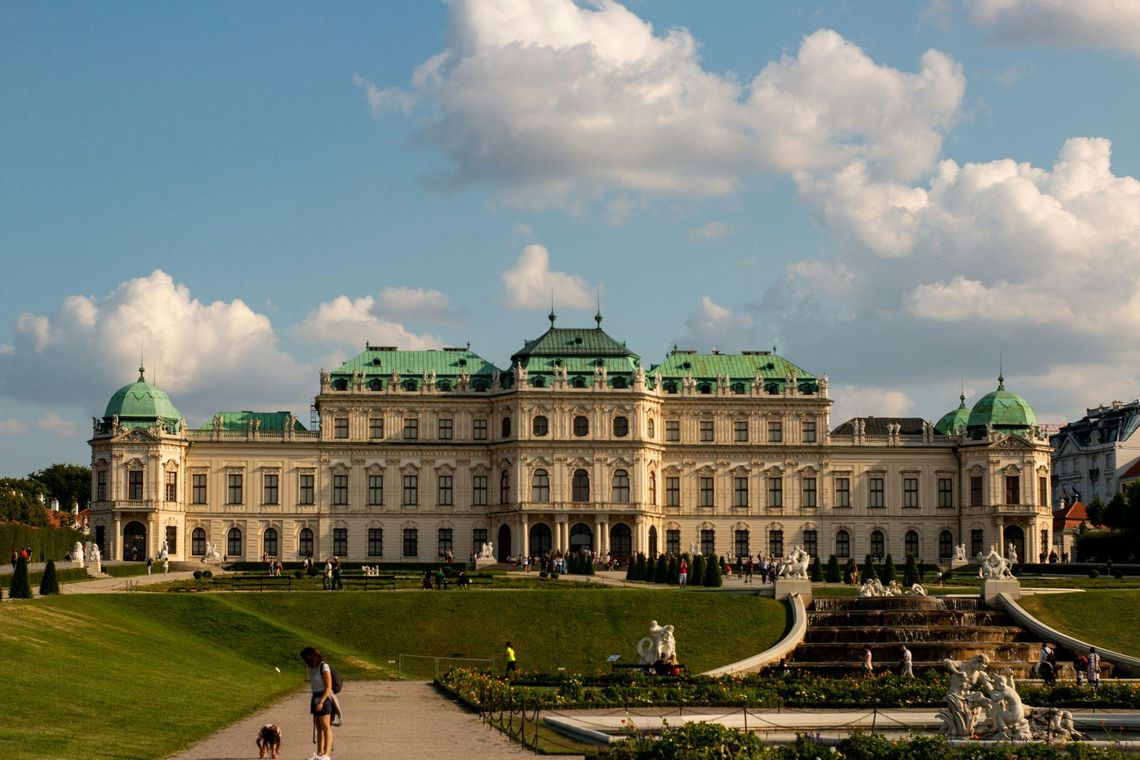
The historic center of Graz is a UNESCO World Heritage Site. Fine examples of Baroque architecture have been preserved here: Haus am Luegg and Renaissance buildings: Landhaus and Rathaus. The building of the Kunsthaus serves as a contrast against the background of the city’s classical architecture, often hosting temporary exhibitions.
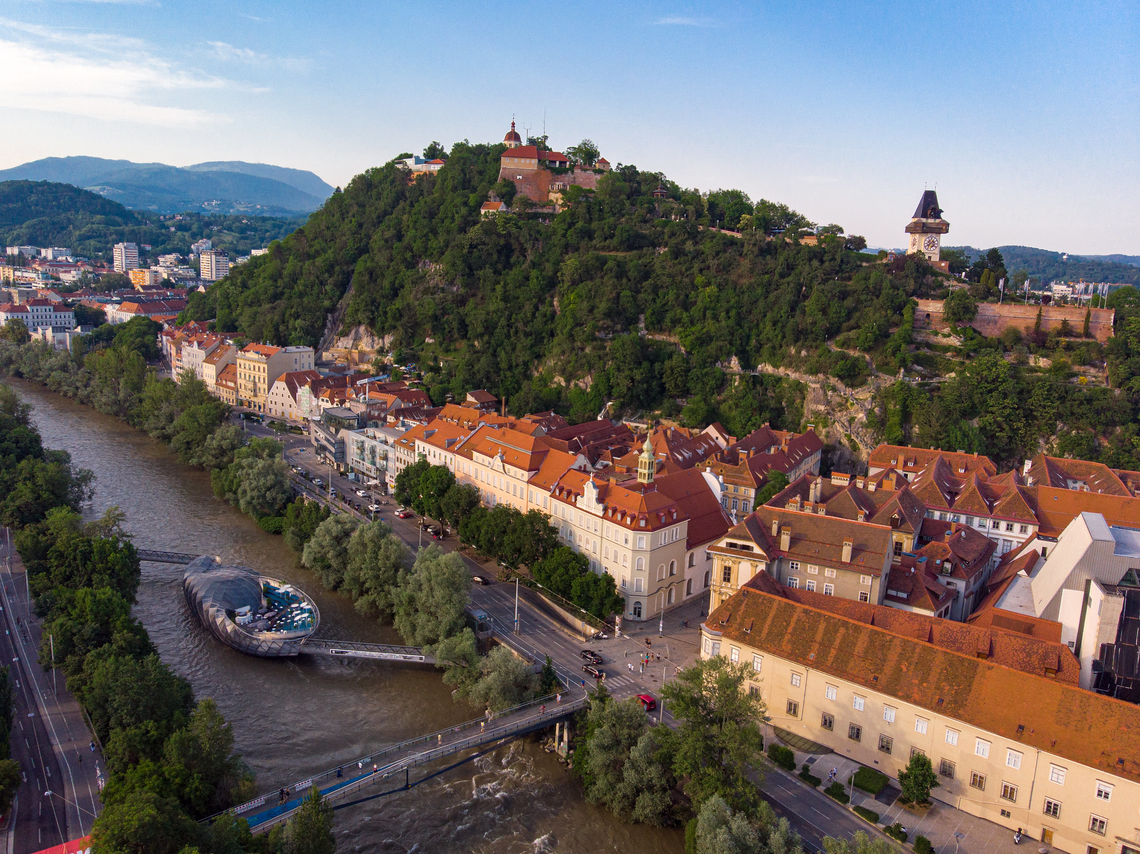
The city is known both for its architecture and its rich musical heritage: Salzburg is the birthplace of the most famous composer, Wolfgang Amadeus Mozart. The composer's family home is open as a museum, and every summer the Haus für Mozart and Festspielhaus host the Salzburg Festival, which includes classical music concerts and theatrical performances.
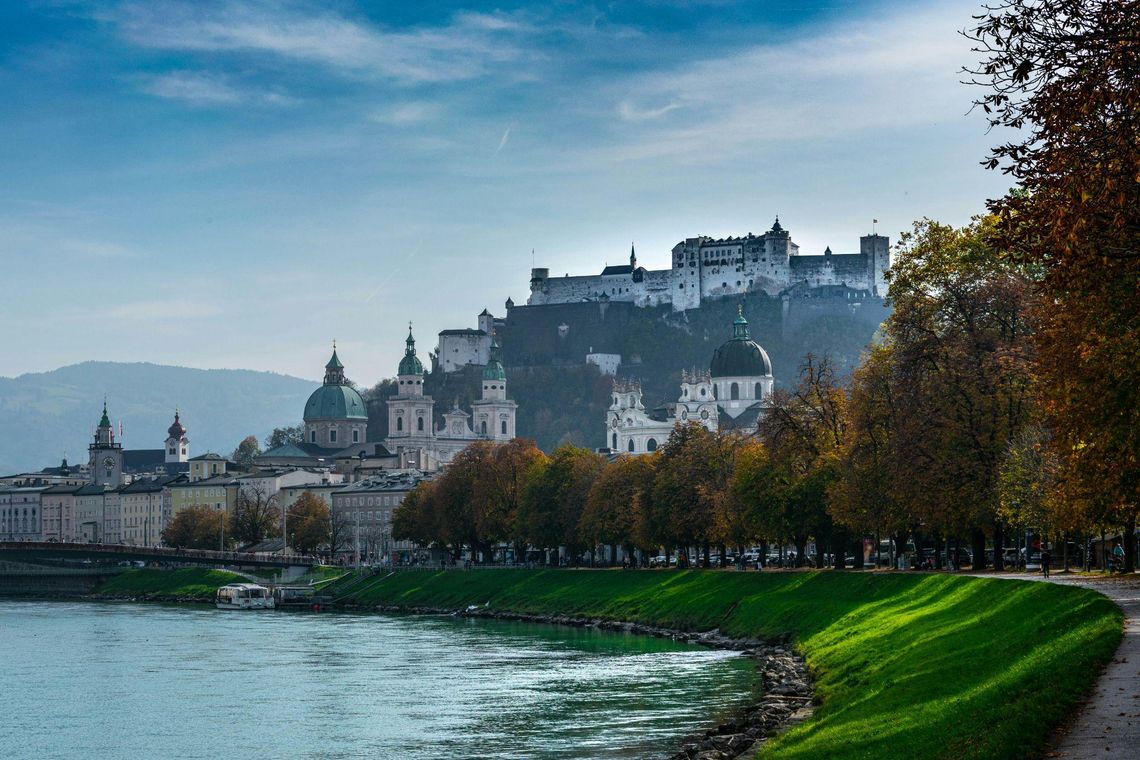
Innsbruck is known as one of the most popular ski resorts in Austria, boasting six zones with a large selection of various routes. There is an unusual funicular that delivers skiers from the very center of the city to the Nordkette — one of the most difficult routes.
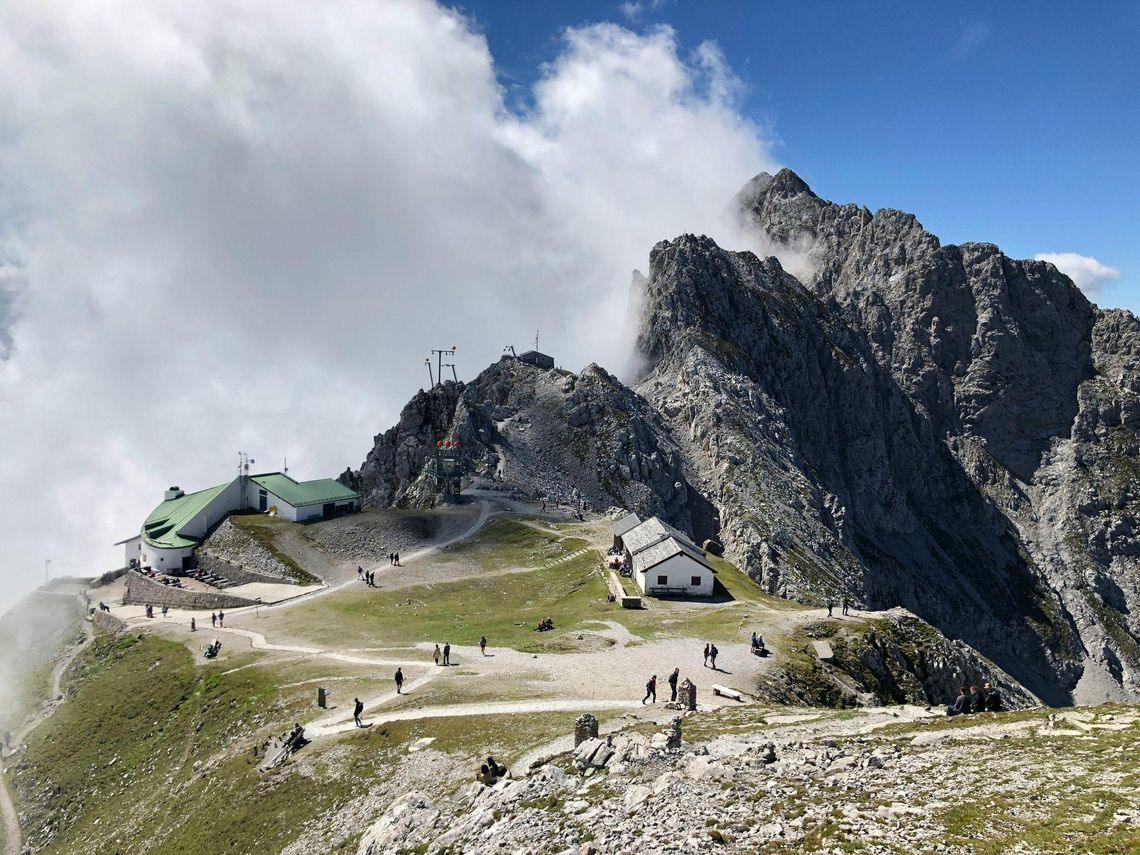
60+ countries
we work with
$1,000,000 saved
by students through scholarships
6,400 offers
our students got